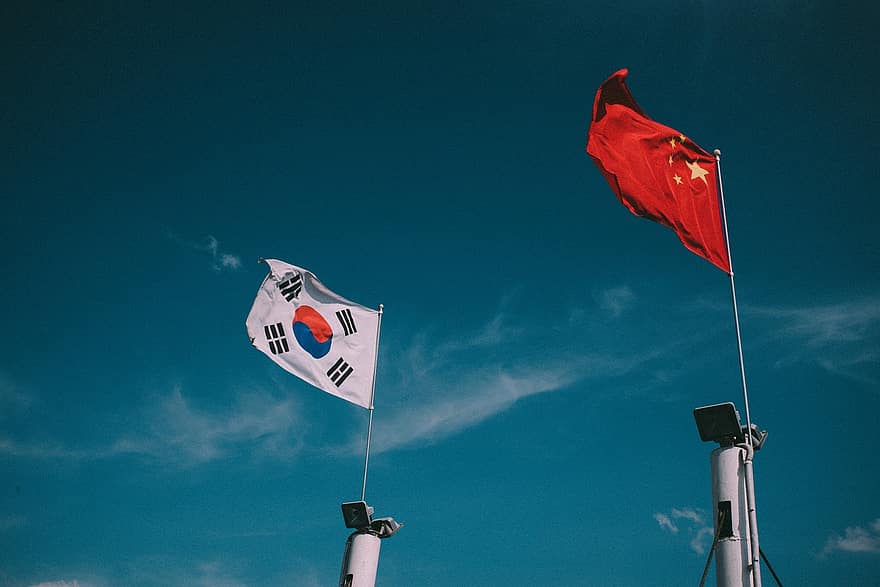Ahead of the Biden-presidency, China and South Korea tie the knot

Despite the outrage provoked last week by China’s claiming kimchi as their own, Sino-South Korean relations have in reality never been stronger. Indeed, the bizarre culinary spat belies the fact that just last month Chinese Foreign Minister Wang Yi met with a steady stream of South Korean politicians in Seoul, including President Moon Jae-in, in what seems like accelerated cementation of bilateral relations.
While the bilateral talks covered topics from cooperation on epidemic control to the organization of a “Year of Cultural Exchange 2021” between China and South Korea, the most significant announcement was that Chinese President Xi Jinping is shortly due to visit Moon Jae-in in Seoul. Long-anticipated, the significance of the summit between the two leaders is hard to overstate in light of China’s recent geopolitical coup, in the form of the Regional Comprehensive Economic Partnership (RCEP), of which Seoul, along with 15 other countries, is also a signatory.
China’s Korean power play
The RCEP group comprises nearly a third of the world's population, constituting 29% of global gross domestic product with a combined GDP of around $26 trillion. Recent estimates suggest that this deal could be responsible for increasing global national income by $186bn annually by 2030. Those set to benefit the most will be China, Japan, and South Korea, who could see an increase of 1% of their real income by 2030 as a result of RCEP. China is already South Korea’s biggest trading partner, representing $136.2 billion or 25.1% of total South Korean exports, and this share will now likely increase.
RCEP is now the biggest free-trade agreement in the world – and notably without the US. For South Korea, joining RCEP was an obvious choice, given that the country has been slowly pivoting towards China as the primary frame of reference for its international relations. As a consequence, the country has begun to chart an independent course on China, one whose strategic political and economic interests are increasingly diverging from that of Seoul’s traditional security guarantor, the United States, and from those of the West in general. But Washington isn’t entirely blameless in this, since it was Trump’s pulling the plug on the Trans-Pacific Partnership (TPP) that allowed China to seize the opportunity and offer its own Made-in-China concoction to the many disillusioned countries in the region.
If Seoul tended to tread lightly on China before – due to crucial trade links and Beijing’s clout in the North Korean question – then the fact that Seoul is now looking to gain an outsized benefit from RCEP means that the country has taken another step towards becoming even more firmly embedded in Beijing’s socio-political orbit. This alone should be worrisome to Washington, especially given that China’s encroachment doesn’t end with the RCEP either. Tentative discussions about a trilateral FTA between China, South Korea, and Japan have been on the table since 2013 but as of late, Beijing and Seoul have been keen to push forward, officially catalyzing the process into the planning phase just as the United States is getting ready for a Biden presidency.
Too late to change the trajectory?
The next administration is therefore already at a disadvantage when it comes to repairing US-Korean relations, not least because Chinese geopolitical maneuvering has effectively undercut America’s long-standing diplomatic processes in the Asia-Pacific. And ironically, the prospect of a more reconciliatory Biden presidency in matters of foreign policy has only exacerbated the urgency with which Beijing is trying to permanently reorder the region. Wang’s visit especially signals China’s turbo-boosting of foreign relations in the lead up to Biden’s inauguration. As one political analyst explained, “The fact that Biden said he would return to multilateralism and that the U.S. has yet to move... appears to motivate China to quicken its efforts in making first moves before the U.S. surely comes back".
In light of these ever-growing tensions between China and the US, any South Korean collaboration with the Middle Kingdom will not be viewed lightly, and neither will China be taking kindly to Korea cozying up to Washington again. But perhaps the reality on the ground has already superseded these considerations: as Seoul and Beijing are going into diplomatic overdrive, it looks as if in a world defined by another Cold War between two superpowers, South Korea has firmly chosen its side.
(Disclaimer: Devdiscourse's journalists were not involved in the production of this article. The facts and opinions appearing in the article do not reflect the views of Devdiscourse and Devdiscourse does not claim any responsibility for the same.)
- FIRST PUBLISHED IN:
- Devdiscourse
ALSO READ
China Visits Spark Political Showdown: BJP vs Congress
Former President Faces Death Sentence in South Korea's Political Drama
Congress Challenges BJP Over China's 'Red Carpet' Treatment
Death Penalty Sought for Former South Korean President in Martial Law Case
South Korea's Legal Drama: Death Penalty Sought for Ex-President Yoon

 Lucky Guleria
Lucky Guleria









